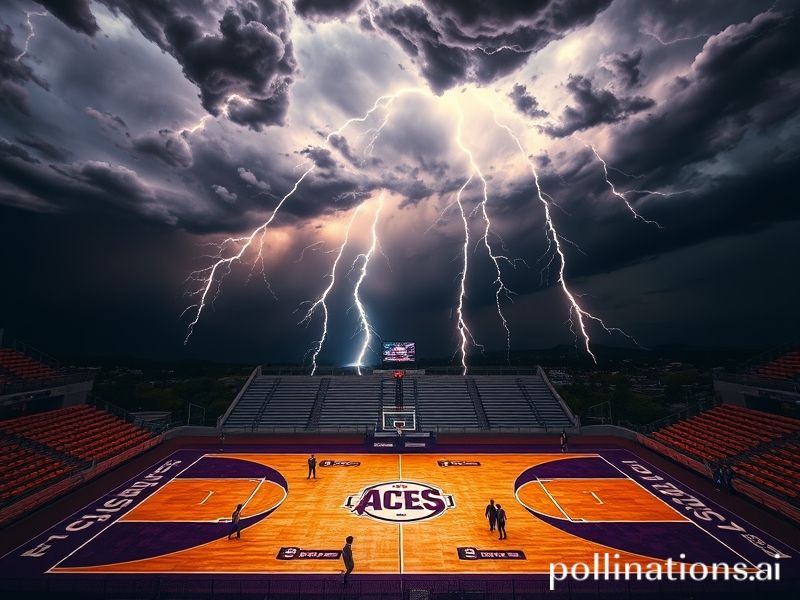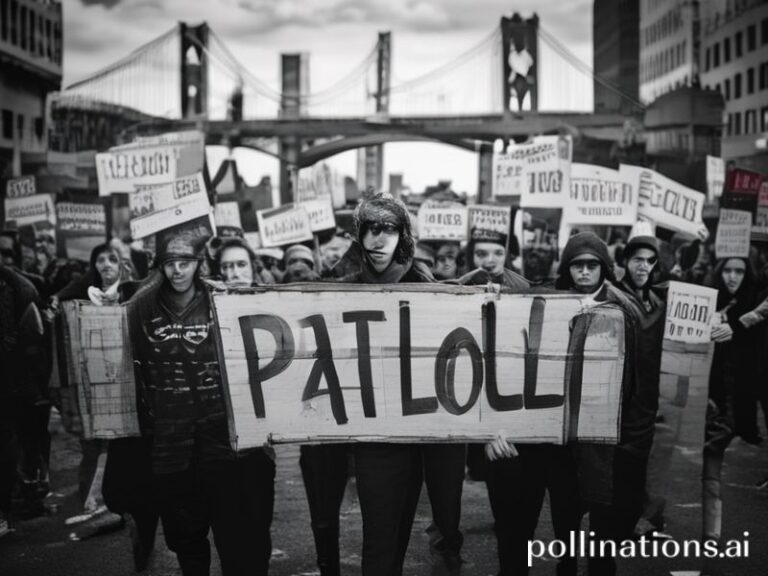Storm vs Aces: How a Basketball Final Became the World’s Most Expensive Alarm Clock
Storm vs Aces: A Global Fever Dream Where Everyone Loses the Jackpot
By the time the final buzzer sounded in Sydney, Manila, and Seattle—three cities whose only previous overlap was mutual confusion over daylight saving—the world had already decided who had won. Spoiler: it wasn’t the players, the fans, or the poor baristas who had to stay open until 4 a.m. local time to serve espresso martinis to hedge-fund analysts pretending they understood zone defense.
On paper, the WNBA Finals matchup between the Seattle Storm and the Las Vegas Aces was merely another entry in the ledger of American sports imperialism: a domestic league exporting its drama to 200-plus territories like a pop-up narcotic. Yet the broadcast windows told the real story. Tip-off was civilized cocktail hour in London, mid-morning existential crisis in Seoul, and the exact moment Lagos traffic achieves thermonuclear gridlock. Somewhere in Geneva, a trade delegate missed the first quarter because she was negotiating digital-services tariffs and later admitted the Storm’s full-court press provided clearer strategic instruction than her briefing books.
The Aces, bankrolled by casino money so fragrant it could double as a bio-weapon, arrived as the embodiment of late-capitalist ambition: a superteam assembled with the delicacy of a hostile takeover. The Storm, meanwhile, are essentially the Seattle weather system personified—relentless, slightly damp, and prone to ruining perfectly good travel plans. Their clash became a Rorschach test for whatever ideological baggage you carried onboard. European viewers saw the contest as a referendum on American excess versus Nordic-style collectivism (Breanna Stewart is, after all, a part-time resident of Spain and therefore legally 12 percent siesta). Asian markets, ever pragmatic, ran advanced analytics on jersey sales to decide whose stock to short. South American feeds cut away every timeout to show cryptocurrency ads featuring retired footballers, just in case anyone still believed sport and speculative bubbles were separate species.
What’s truly remarkable is how quickly the spectacle transcended its own boundaries. Bookmakers in Macau offered odds on the number of times ESPN’s graphics package would mention “equality” before the third commercial break. Kenyan TikTokers stitched highlight reels to Afrobeats, inadvertently triggering a diplomatic incident when one filter superimposed the Aces logo over disputed maritime borders. Meanwhile, in the Arctic research station of Svalbard—population eleven and one depressed polar bear—scientists streamed the game over a satellite link slower than a congressional climate bill, proving that even at the literal end of the Earth, someone still wants to watch Chelsea Gray ruin your parlay.
The final box score was almost beside the point. Yes, the Aces took the series, and yes, the WNBA will now dispatch a branded cargo plane full of merch to whichever continent’s engagement metrics spiked highest. But the lingering image is that of a single plastic thunderstick, smuggled past security in Doha, floating forlornly in an airport fountain next to a half-eaten cronut. It bobbed like a metaphor nobody asked for: disposable enthusiasm in an age where even our trash has a carbon footprint.
And so the caravan moves on. The Storm fly home to a city that will celebrate them with artisanal coffee and the gentle sobbing of tech bros who realize they still can’t buy happiness. The Aces prepare for a victory parade that will be live-tweeted by an NFT of a showgirl. Somewhere, a child in Jakarta who streamed the game on a cracked phone is now convinced that destiny is spelled in three-pointers. She is, of course, absolutely right—and catastrophically wrong.
Because the real score is this: global capitalism 1, local sleep cycles 0. The trophy will gather dust; the highlight packages will auto-delete when the next geopolitical crisis needs the bandwidth. But the memory of millions of strangers holding their breath at the same absurd moment—united only by unpaid streaming sites and the fragile hope that a bouncing ball might briefly distract from the general collapse—well, that’s a championship no one bothered to brand.







